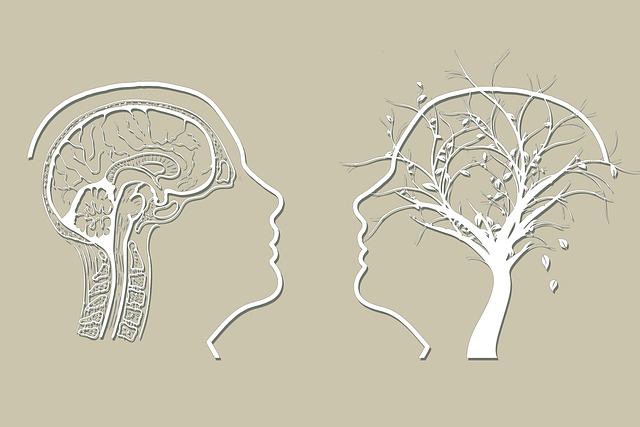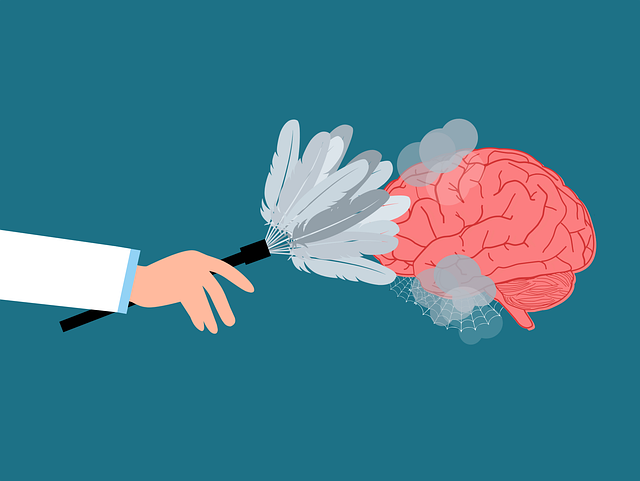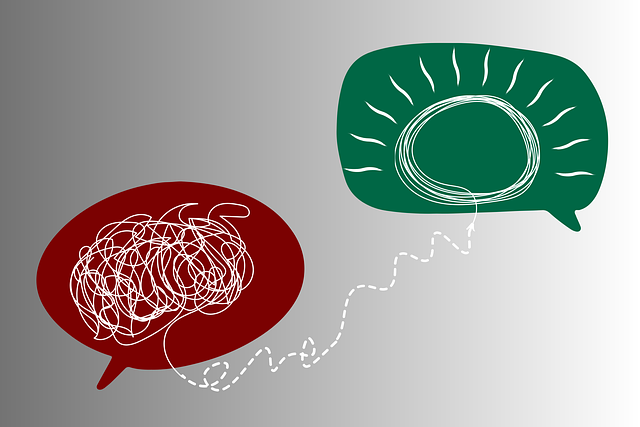Aurora Parenting Skills Therapy (APST) is an evidence-based program combining cognitive-behavioral therapy, mindfulness, and self-awareness exercises to help parents manage children's challenging behaviors. Evaluating APST involves both quantitative methods—using statistical analysis of survey data to measure changes in symptoms and attitudes—and qualitative feedback from clients and therapists to understand the program's strengths and areas for improvement. Long-term impact evaluations track participants' progress over time, providing insights into program effectiveness and key contributors to positive outcomes. Continuous improvement is driven by regular data collection, allowing APST to evolve with diverse participant needs, stay relevant, and ensure tailored support for optimal mental wellness.
Mental wellness program evaluations are crucial for measuring success and driving improvement. This article explores comprehensive evaluation methods used in Aurora Parenting Skills Therapy, a proven approach to enhancing family dynamics. We delve into quantitative techniques assessing program effectiveness, qualitative feedback from clients and therapists, long-term impact tracking, and continuous refinement strategies based on data insights. By understanding these methods, you’ll grasp how Aurora Parenting Skills Therapy fosters positive change and ensures optimal outcomes for families.
- Understanding Aurora Parenting Skills Therapy: An Overview
- Assessing Program Effectiveness: Quantitative Methods
- Qualitative Feedback: Client and Therapist Perspectives
- Long-term Impact Evaluation: Tracking Progress and Success
- Continuous Improvement: Using Data for Program Refinement
Understanding Aurora Parenting Skills Therapy: An Overview

Aurora Parenting Skills Therapy (APST) is a structured program designed to empower parents and caregivers with effective strategies for managing challenging behaviors in children. This therapeutic approach focuses on building strong, healthy relationships between parents and their kids by enhancing communication, understanding, and positive discipline techniques. APST incorporates evidence-based practices, combining elements of cognitive-behavioral therapy, mindfulness, and self-awareness exercises to foster emotional intelligence in both parents and children.
The program offers a comprehensive risk assessment for mental health professionals to identify potential issues and tailor interventions accordingly. Through structured sessions, participants engage in interactive activities that promote self-reflection and improve their ability to manage stress and intense emotions. By cultivating emotional intelligence, APST aims to create a more harmonious family environment, enhancing overall mental wellness for all involved.
Assessing Program Effectiveness: Quantitative Methods

Evaluating the effectiveness of mental wellness programs like Aurora Parenting Skills Therapy requires a robust approach that includes quantitative methods. These methods involve statistical analysis of data collected from various sources, such as participant surveys and pre-post tests. By quantifying changes in symptoms, attitudes, and behaviors before and after program involvement, researchers can assess the impact of interventions. For instance, comparing scores on anxiety and depression scales can demonstrate reductions in distress levels among participants.
Quantitative assessments also enable the identification of specific components within programs that are most effective. This information is valuable for refining existing mental wellness initiatives and designing future ones. Moreover, these methods contribute to the broader field of mental healthcare by providing evidence-based insights, enhancing Cultural Sensitivity in Mental Healthcare Practice, and fostering Mental Health Awareness more generally. Stress Management Workshops Organization can benefit from such evaluations to tailor their offerings, ensuring they address the most pressing needs of their target populations.
Qualitative Feedback: Client and Therapist Perspectives

The evaluation of mental wellness programs often involves gathering qualitative feedback from both clients and therapists. This perspective offers a nuanced understanding of the therapeutic journey, highlighting strengths and areas for improvement within the program structure and delivery methods. Clients’ insights provide valuable information about their experiences, including the effectiveness of various interventions, such as conflict resolution techniques or trauma support services, in enhancing self-care routine development for better mental health.
Therapists’ perspectives offer a unique insight into the program’s implementation and its impact on both clients and themselves. They can share observations about individual client progress, the overall group dynamics, and the program’s ability to meet diverse needs. This feedback is crucial in refining the approach, ensuring the program aligns with the evolving mental wellness landscape, and ultimately fostering more effective support for all participants, especially those engaging in Aurora Parenting Skills Therapy.
Long-term Impact Evaluation: Tracking Progress and Success

The long-term impact evaluation is a crucial aspect of any successful mental wellness program, especially in contexts like Aurora Parenting Skills Therapy where fostering lasting change is paramount. This process involves tracking participants’ progress over an extended period to gauge the sustainability of improvements in their mental health and overall well-being. By implementing systematic follow-up assessments, therapists and researchers can identify which components of the program contribute most significantly to positive outcomes, allowing for continuous improvement.
This evaluation method extends beyond individual success stories; it provides valuable insights into the effectiveness of the entire program, including Mental Wellness Coaching Programs Development strategies and Community Outreach Program Implementation techniques. Moreover, tracking long-term impacts plays a critical role in Mental Illness Stigma Reduction Efforts by demonstrating the program’s ability to not only alleviate symptoms but also foster societal changes that support mental health awareness and acceptance.
Continuous Improvement: Using Data for Program Refinement

In the pursuit of enhancing mental wellness through programs like Aurora Parenting Skills Therapy, continuous improvement is paramount. Data plays a pivotal role in refining and optimizing these initiatives. By systematically collecting and analyzing participant outcomes, therapists gain valuable insights into what’s working and where adjustments are needed. This data-driven approach ensures that the program evolves to better meet the diverse needs of individuals seeking support, such as those engaging in Coping Skills Development or striving for Inner Strength Development.
Regular evaluation enables therapists to implement targeted changes, incorporating effective Empathy Building Strategies within the therapy sessions. The process fosters a dynamic learning environment where both the therapist and participants grow, ultimately contributing to improved mental wellness outcomes. This iterative refinement ensures that programs like Aurora Parenting Skills Therapy remain relevant, effective, and tailored to the evolving needs of those seeking support.
The evaluation of mental wellness programs, such as Aurora Parenting Skills Therapy, is a multifaceted process that leverages both quantitative and qualitative methods. By combining statistical analysis with client and therapist feedback, we gain valuable insights into program effectiveness and impact. Long-term tracking enables us to assess sustained success, while continuous improvement cycles ensure the refinement of practices based on data. This holistic approach not only optimizes the benefits of therapies like Aurora Parenting Skills Therapy but also enhances overall mental wellness outcomes for participants.











